Over a thousand ducks, geese and swans live on Windermere throughout the year. This more than doubles to over two and half thousand birds during the winter!
Many birds fly from Scandinavia and Eastern Europe to spend the winter. Windermere has more birds on it in the winter than any other lake in the Lake District. It's one of the top places in Britain for wintering goldeneye, tufted duck, coot, pochard and red-breasted merganser.
Canada goose - copyright Arthur Grosset
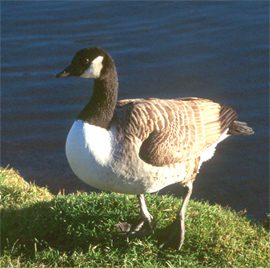
Coot - copyright Arthur Grosset
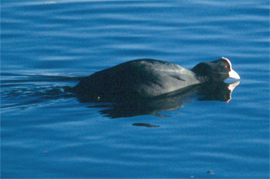
Cormorant - copyright Peter Wallack

Greylag goose - copyright Arthur Grosset
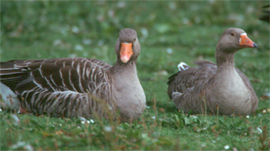
Mallard duck, the most common species - copyright Andrea Hills
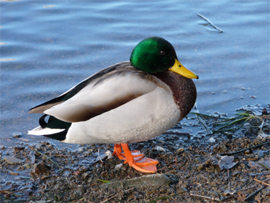
Mute swan - copyright Helen Reynolds

Red-breasted merganser - copyright Peter Wallack
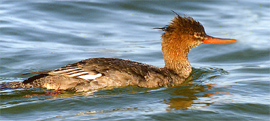
Goldeneye - copyright Arthur Grosset
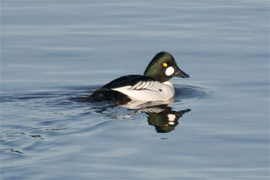
"I am a very shy bird and feed close to the shore in the quieter bays. I have to work all day to find enough food to eat. If I get spooked it forces me to fly, using up valuable energy. And I may not get enough food to survive the winter - so please don't get too close. About 250 of us migrate from Europe to Windermere each year. Normally we don't bother with English lakes, but Windermere is perfect for us!"
Great-crested grebe - copyright Arthur Grosset
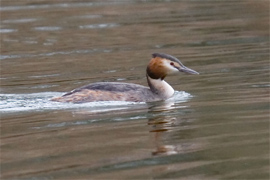
Gull - copyright Arthur Grosset
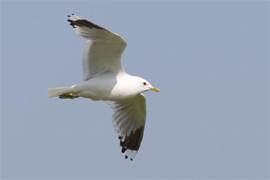
Pochard - copyright Arthur Grosset
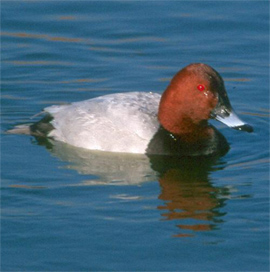
Tufted duck - copyright Arthur Grosset
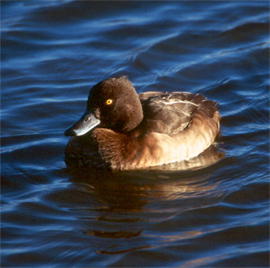
Reed beds offer essential safe and sheltered resting places for overwintering birds and breeding birds in the spring and summer. As the reed beds on and around the Windermere shoreline disappear, so do the number of places for birds to live in.
No one would want a juggernaut driving through their bedroom and flattening their bed, and the same goes for the birds of Windermere. Don't drag boats through or land your boats on shoreline areas with reed beds, even if they've already been damaged.
Wildfowl areas are marked on the Windermere map (PDF).
Reed bed areas are getting smaller and smaller. We don't understand all the reasons why. Pressure from grazing and recreational disturbance are part of the problem. We're working with organisations such as Cumbria Wildlife Trust, South Cumbria Rivers Trust and the Royal Society for the Protection of Birds on this issue.
We can help you with booking tickets and attractions, ideas for walks places to visit, and we've got a range of guidbooks, maps and gifts. See us on the south side of Bowness Bay, home to Bowness Information Centre.